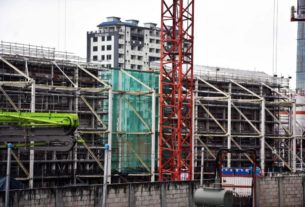
Thai Solar Energy’s CEO goes Huawei at home
Cathleen Maleenont has led Thai Solar Energy PCL for more than a decade, steering the company to its position at the forefront of renewables development in the Asia-Pacific region. After selecting Huawei to be its technology partner for what will be Japan’s largest solar plant, Maleenont has quite literally decided to take Huawei’s solutions home with her, by installing them as part of her own personal solar system.
In the time Cathleen Maleenont has been at the helm of Thai Solar Energy (TSE), the company has been named among Asia’s Best Performing Companies in the Asia Corporate Excellence and Sustainability Awards and has secured some of the most notable utility-scale solar PV projects in the region. In her decade at the company, including the last seven years as chief executive officer and chair, Maleenont has also managed to carve out a foothold for Thai Solar Energy in Japan, one of East Asia’s most significant renewable energy markets.

TSE is currently constructing what will be the country’s largest solar park, the Onikoube Solar Power Plant. The project is being built on a 156-hectare former golf course in the city of Osaki, in northeastern Japan’s Miyagi prefecture. The CNY 35.5 billion ($320 million) project will have a generation capacity of 147 MW once it goes online in 2023. Owned by PurpleSol, an affiliate of Thai Solar Energy, the solar park has been designed so the 362,960 solar panels it features can accommodate the sloping terrain and snowfall in the area.
TSE has selected Huawei as its technology partner for the ambitious project. In 2019, they entered into an agreement with each other under which Huawei will supply its 1500V Smart PV Solution with Smart I-V Curve Diagnosis. Combined with Huawei’s AI algorithm, the solution will optimize the Onikoube Solar Power Plant’s operation and maintenance efficiency and reduce its operating costs. Thai Solar Energy partnered with Huawei on this “mega” project after the two companies successfully collaborated on a pilot array in July 2014.
Maleenont said that TSE selects its technology partners based on three metrics. The first, naturally, is quality, with Maleenont saying that the company chooses only “state of the art technology.” Reliability is also crucial, with a key component of that including “brand name and customer acceptance.” Lastly, the technology must be reasonably priced. Evidently, Thai Solar Energy found that Huawei’s Smart PV Solutions fulfilled all these benchmarks.
After a decade developing utility-scale solar farms in Thailand and more than seven years in Japan, Maleenont said the main differences in the two markets involve rules and regulations, rather than product preferences. “The economic terms versus the efficiency of products used are currently competitive, therefore operators like TSE have choices in selecting the best products at the best economic return,” Maleenont said.
Thai Solar Energy’s portfolio today comprises 41 renewable energy projects with a total combined capacity of 300 MW. This includes 15 utility-scale solar farm projects in Thailand and eight in Japan. In May, The Bangkok Post reported that Thai Solar Energy is also in the process of acquiring two new renewable assets. These installations will add a further 50 MW to its portfolio, as the company targets increasing its capacity by up to 200 MW in the next three to five years.
While Thai Solar Energy specializes in utility-scale solar, it has also installed more than 10 MW of rooftop solar. “[Rooftop solar] is getting more popular due to the lower cost of investment and higher efficiency of the equipment installed,” Maleenont said. Thai Solar Energy currently has 14 commercial rooftop solar projects installed in Thailand.
Source: https://www.pv-magazine.com/2021/09/17/thai-solar-ceo-goes-huawei-at-home/



